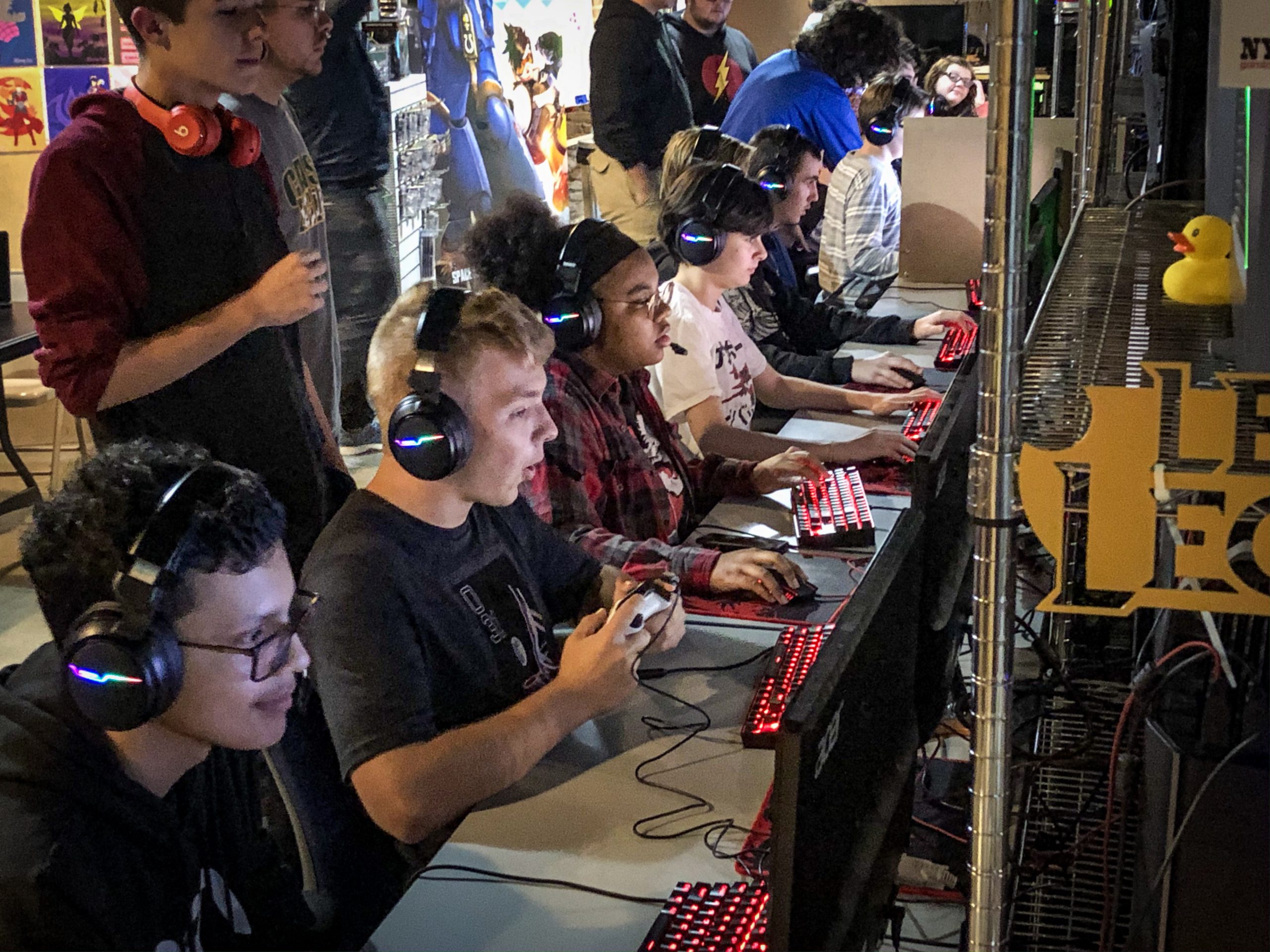What activity is bringing together students from different cliques, students who don’t normally talk to one another, at Clinton High School in Wisconsin?
Well, it’s not the football team or social media app TikTok, or even the school’s overall performance on standardized tests.
It’s high school esports.
Students are sharing their passions and interests while playing video games at team practices, says Bryan Erskine, the esports coach who’s also the rural school’s director of technology and a library media specialist.
More from DA: Why esports students develop healthier tech habits
“We’re seeing barriers breaking down,” Erskine says. “We’ve seen athletes who would’ve never gone out for a play joining the drama club and kids in the band going out for sports.”
“And they’re all hanging out outside of school,” he adds.
Playing chess high school esports practice
As in many other states, high school esports is taking off in Wisconsin. A state high school esports league, Wisconsin High School Esports Association, began operations three years ago.
Clinton High School’s esports teams have been competing for the past four years, and its members are among the few in the state who receive varsity and junior varsity letters.

“That came out of a desire to legitimize esports—not so much for the students, but more so for their parents,” says Erskine, whose school is part of the Clinton Community School District. “We have a lot of parents who question whether esports should be in schools.”
To make his case, Erskine describes how students benefit academically and socially when they play on an esports team.
For the adventure game League of Legends, for example, students work together offline to strategize for upcoming matches. They also study the battle techniques used by their opponents. Before and during play, they often have to calculate the power of their team’s weapons—and the damage being done to opponents.
For district administrators or other educators thinking about launching esports, Erskine recommends starting small, with a single game such as League of Legends, which is free and has low computer system requirements.
Also, find a teacher or other educator who is knowledgeable and enthusiastic about esports—and don’t be afraid to think outside the box, he says.
“Twice a month, we practice by playing chess,” he says. “We also do team-building physical exercises like going for walks and hikes.”
Don’t build a bowling alley
James O’Hagan, whom students at Racine Unified School District have labeled the “esports czar,” took an unconventional route in launching the program in his more suburban Wisconsin district.

Instead of spending lavishly to build an esports facility or even co-opting corners of computer labs, he partnered with local gaming lounge Not Your Parents Basement.
The district now rents out the lounge after school, at a cost of $36,000 over the past two years, for five high school teams. This way, the district doesn’t have to worry about hardware or bandwidth.
“Schools have bowling teams, but they don’t build bowling alleys to do it,” says O’Hagan, Racine USD’s director of digital and virtual learning.
The district has set five overriding goals for esports:
- redefining athletic culture
- expanding extracurricular offerings
- promoting good mental and physical health
- adding college and career pathways
- honoring the importance of play
“People don’t think of video games as being good for mental health, but this isn’t kids playing video games for six hours,” says
More from DA: Why Virginia launched a high school esports league pilot
O’Hagan, who hosts the “Academy of Esports” podcast. “We have purposeful practices, and we have days when kids are not in the gaming lounge; they’re out getting exercise.”
He has seen his players’ grades improve significantly after joining the team. “What it’s worth to a district is an additional 10, 20, 30 students graduate every year,” he says.
‘If someone Googles you ’
School administrators getting into esports shouldn’t rush out and buy high-end computers or licenses for multiple games, O’Hagan advises.
“First, you should look at the strategic goals for your district or school and figure out where esports fits into every single one,” he says. “If you’re just playing video games, you’re missing an opportunity to engage kids meaningfully in much bigger ways.”

For example, he often talks with members of his esports teams—whom he calls “scholar gamers”—about concepts of entrepreneurship and marketing.
“I ask them, ‘If someone Googles you, what are they going to find,’” he says. “The kids think, ‘Oh my gosh, I have to think about what my branding looks like.’ This allows us to have much broader conversations.”
More from DA: How to supply tech essentials for esports in schools
Across Wisconsin, 57 varsity teams now compete in esports. That number could grow past 60 by 2020, says Mike Dahle, a former educator who is director of the Wisconsin High School Esports Association.
School administrators are gravitating toward esports because a whole industry has sprung up around the players. Teams need managers, promoters, websites, graphic designers, streaming services, social media coverage and play-by-play announcers.
“There are a lot of real-world applications besides just the gaming,” Dahle says.
Interested in esports? Keep up with LRP’s Academic Esports Conference and Expo.







